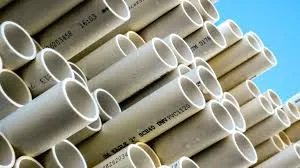Sep . 24, 2024 20:29 Back to list
High-Density Polyethylene Drip Irrigation Solutions for Efficient Water Usage in Agriculture
The Benefits of HDPE Drip Irrigation Products
In the world of agriculture and water management, effective irrigation systems are crucial for optimal crop growth. Among the various options available, High-Density Polyethylene (HDPE) drip irrigation products have gained significant attention due to their numerous advantages. This article will explore the benefits of HDPE drip irrigation systems, highlighting their efficiency, durability, and environmental impact.
Efficiency in Water Use
One of the primary benefits of HDPE drip irrigation systems is their superior efficiency in water use. Traditional irrigation methods often lead to significant water loss through evaporation and runoff. In contrast, drip irrigation delivers water directly to the root zone of plants, minimizing wastage and ensuring that every drop counts. This targeted approach not only helps conserve water but also promotes healthier plants, as they receive a consistent supply of moisture.
Moreover, HDPE drip irrigation systems allow for precise control over water application. Farmers can adjust the flow rates and distribution patterns according to the specific needs of their crops. This precision reduces water stress on plants and can significantly enhance crop yields. In regions where water scarcity is a pressing issue, adopting HDPE drip irrigation can be a game-changer, allowing farmers to grow more with less water.
Durability and Longevity
HDPE is renowned for its strength and durability. Unlike traditional irrigation materials, such as PVC, HDPE pipes are resistant to cracking, corrosion, and UV damage. This resilience translates to a longer lifespan for drip irrigation systems, reducing the need for frequent replacements. Farmers can invest in HDPE products with the confidence that they will withstand the rigors of the agricultural environment, including exposure to harsh weather conditions and soil interactions.
hdpe drip irrigation products

Additionally, HDPE drip products are lightweight and easy to handle, simplifying the installation process. The flexibility of HDPE allows for intricate irrigation layouts that can adapt to the contours of varied landscapes, maximizing efficiency in water distribution.
Environmental Benefits
The adoption of HDPE drip irrigation systems also contributes to more sustainable agricultural practices. By minimizing water usage, these systems help preserve valuable water resources and reduce the environmental impact of farming. Furthermore, efficient water use can lead to lower energy costs associated with pumping and transporting water.
In addition, HDPE materials are recyclable, making them an environmentally friendly choice compared to other plastic irrigation options. By opting for HDPE drip irrigation products, farmers not only optimize their agricultural practices but also promote a more eco-conscious approach to farming.
Conclusion
In summary, HDPE drip irrigation products represent a significant advancement in water management for agriculture. Their efficiency in water use, combined with unmatched durability and positive environmental impact, make them an ideal choice for modern farming practices. As water scarcity becomes an increasingly urgent issue globally, the implementation of HDPE drip irrigation systems will play a pivotal role in ensuring sustainable agriculture and food security. By investing in these innovative products, farmers can enhance crop productivity while contributing to environmental conservation.
-
High-Quality PVC Borehole Pipes Durable & Versatile Pipe Solutions
NewsJul.08,2025
-
High-Quality PVC Perforated Pipes for Efficient Drainage Leading Manufacturers & Factories
NewsJul.08,2025
-
High-Quality PVC Borehole Pipes Durable Pipe Solutions by Leading Manufacturer
NewsJul.08,2025
-
High-Quality PVC Borehole Pipes Reliable PVC Pipe Manufacturer Solutions
NewsJul.07,2025
-
High-Quality UPVC Drain Pipes Durable HDPE & Drain Pipe Solutions
NewsJul.07,2025
-
High-Quality Conduit Pipes & HDPE Conduit Fittings Manufacturer Reliable Factory Supply
NewsJul.06,2025

